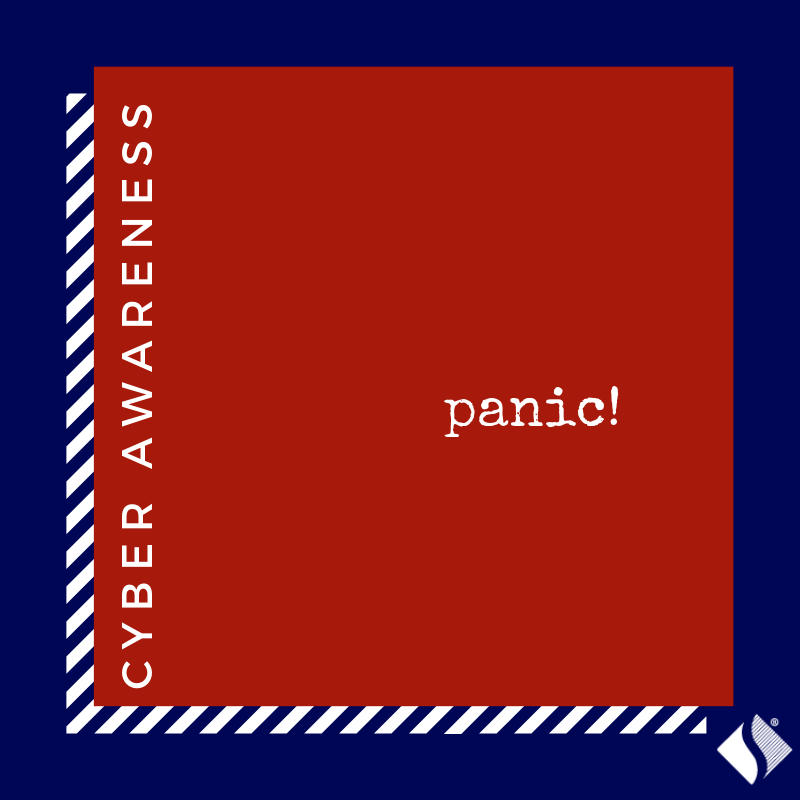Panic!
Did you know panic is a significant red flag when it comes to fraud? If you receive an email, phone call, or text message out of the blue and its content makes you feel "panicked," it is probably a fake. Fraudsters use this panic reflex to make you take action without thinking it through. Such as having you click a link or share personal information. Don't take the bait! If you do want to follow up on a messages' legitimacy, be sure to look up a reputable number or website. Do not use the phone number or links provided in the message - those are likely spoofed as well!
How to stay vigilant against these attacks?
Stop and ask yourself if this is really something reasonable. For example, common phishing scams urge you to "take action, before it's too late." They often have wildly outlandish consequences associated with them as well. When in doubt, throw it out. And if you feel you do need to verify if it's real or not - always use an abundance of caution with what methods you use for verification and what information you share. These scams can be very convincing!


